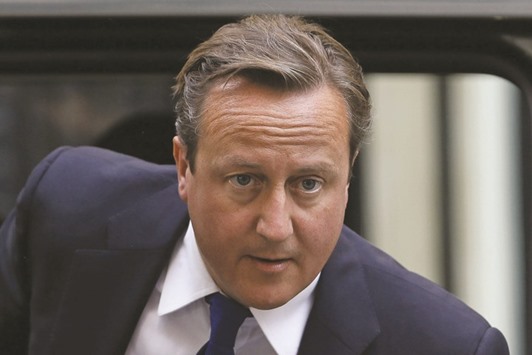The prime minister has been criticised for sending out letters targeted at London’s Gujarati Hindu and Punjabi Sikh voters, calling on them to back the Conservative mayoral candidate, Zac Goldsmith.
The letters from David Cameron suggest Goldsmith is the only sensible choice as mayor for London’s south Asian communities, at a time when we need “to be keeping our streets safe from terrorist attacks”.
In response, a senior member of the Labour mayoral candidate Sadiq Khan’s campaign team said: “It is desperately disappointing that Cameron is indulging in this sort of divisive racial profiling. Zac Goldsmith clearly cannot stand up to the No 10 machine and is pitifully trailing along in its wake with this sort of dog whistle tactic.”
In the new letter under the heading ‘The Gujarati community makes London great’, Cameron writes: “Closer ties between the UK and India have been a priority for me as prime minister. I was pleased to join Zac and thousands of British Gujaratis in welcoming Prime Minister Modi to the UK last year.”
Goldsmith’s main rival is Khan, a Muslim of Pakistani descent, and the favourite to win the contest. The Labour candidate did not attend the event to welcome the Indian Prime Minister, Narendra Modi, a leader who has divided opinion. Until 2012, Modi was barred from entering the UK over allegations that in 2002, when he was chief minister of Gujarat state, he failed to stop anti-Muslim riots in which 1,000 people died.
The letters have been criticised for stereotyping, attempting to exploit historical racial divisions, and for having been inaccurately targeted in the first place, with some recipients saying they felt assumptions about their background were made from their names.
When asked whether Cameron would like to comment on the letters, a Conservative party spokesman said: “Zac Goldsmith has made clear he will reach out to every single part of London, and that means reaching out to every part of the community within London.”
After receiving a letter, retired biochemist Barbara Patel wrote back to the PM, objecting to his “facile and inaccurate attempt at racial profiling”. She said: “You have made a number of assumptions based on my surname (Patel = Gujarat and Gujarat = Hindu) and have attempted to use these ethnically based assumptions to ‘scare’ me into voting for your candidate, Zac Goldsmith.
“I am not from Gujarat. I am not a Hindu. Above all, I have never been, nor ever would be, a Tory voter.”
Patel told Cameron she was of Jewish descent and that “the most distasteful aspect” of his letter was “attempting to cause division between the London Hindu Indian community and its Muslim community, shame on you”.
Goldsmith has already come under fire for sending out racially profiled letters to prospective voters, in which he described Khan as “radical” and “divisive”; implied the Labour candidate was Jeremy Corbyn’s puppet, that Khan had never supported Sri Lanka’s Tamils, and suggested gold and jewellery of Indian families would not be safe under him because he wanted to introduce a wealth tax.
Under the heading The risk of a Corbyn-Khan experiment, Cameron writes: “The alternative is Jeremy Corbyn’s candidate, Sadiq Khan. If he wins Londoners will become lab rats in a giant political experiment. His dangerous and unworkable Corbyn-inspired policies would make housing more expensive for the vast majority.”
However, this week a leaked Labour document suggests that Khan is not a close ally of the Labour leader. Khan cited in a document leaked to the Times as one of the Labour MPs who was “hostile” to Corbyn.
In London, 44% of the population comes from minority ethnic backgrounds, while hate crime against Muslims rose by 70% between 2014 and 2015. Similar letters have been sent to people with Sikh names, outlining the “dangers” of Khan winning. Some of the letters were also sent to people who are not Sikh, but have Sikh-sounding names.
This week, Goldsmith defended the language he had used to describe Khan, insisting this was not a fearmongering tactic. “It’s not a race element at all,” he said. “I talk to different communities about their concerns. He is radical and divisive because of his approach to politics.
“He is a fundamentally partisan figure in politics. These are terms that I use and will continue to use to describe Sadiq Khan.”

David Cameron
